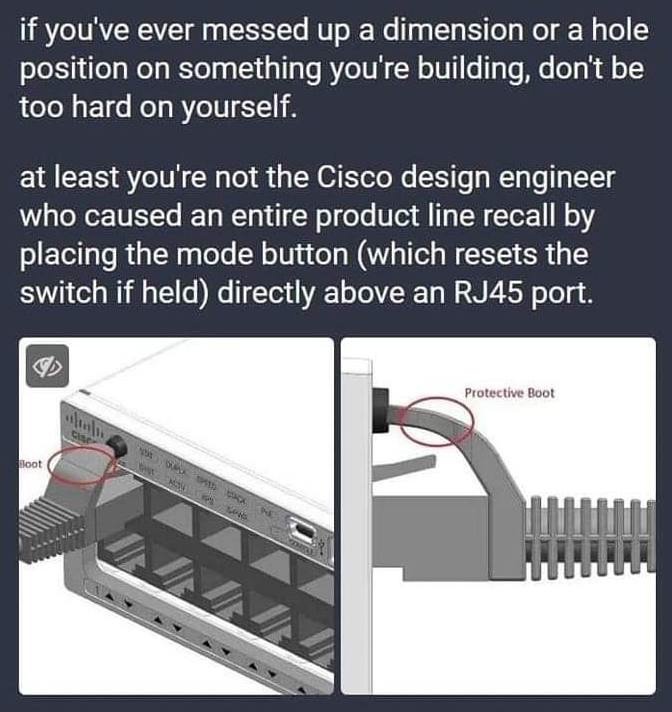this post was submitted on 18 Aug 2023
1253 points (99.2% liked)
Memes
8285 readers
1310 users here now
Post memes here.
A meme is an idea, behavior, or style that spreads by means of imitation from person to person within a culture and often carries symbolic meaning representing a particular phenomenon or theme.
An Internet meme or meme, is a cultural item that is spread via the Internet, often through social media platforms. The name is by the concept of memes proposed by Richard Dawkins in 1972. Internet memes can take various forms, such as images, videos, GIFs, and various other viral sensations.
- Wait at least 2 months before reposting
- No explicitly political content (about political figures, political events, elections and so on), !politicalmemes@lemmy.ca can be better place for that
- Use NSFW marking accordingly
Laittakaa meemejä tänne.
- Odota ainakin 2 kuukautta ennen meemin postaamista uudelleen
- Ei selkeän poliittista sisältöä (poliitikoista, poliittisista tapahtumista, vaaleista jne) parempi paikka esim. !politicalmemes@lemmy.ca
- Merkitse K18-sisältö tarpeen mukaan
founded 2 years ago
MODERATORS
you are viewing a single comment's thread
view the rest of the comments
view the rest of the comments


Yes, it's the engineer's fault. OTOH, it's QA's fault for not catching that mistake, and the company's fault for releasing a product that wasn't properly tested.
We're talking about Cisco here, a company that sells millions of units. The more units you expect to sell, the more extensive your QA procedures need to be. It's not like this is their first piece of networking gear either. Maybe they've never had this specific error before, but surely they've had errors caused by people using a variety of different kinds of ethernet cables. I would imagine they have tests where they plug a dozen different kinds of ethernet cables into every new product they make just to ensure that a cable that has given them problems before doesn't have issues with this new piece of gear.
When a problem like this is caught by QA people, it's mostly the engineer's fault for a design mistake. When these errors are caught in the wild by customers, it's the company's fault for a screw-up somewhere in their QA / test / release procedures.
Are they still that popular, even today? From what I've seen, many enterprise users have moved towards Juniper and Arista, while small business and prosumer have moved towards Unify and Omada.
Cisco's worth $224b USD, not all of that is hardware, they also have WebEx, ClamAV, and various other things under other brands. Don't forget that a lot of their hardware is under other brands too, for example they owned Linksys for a while, and currently own Scientific Atlanta. In total, they've acquired 243 different companies over the years, so even if something doesn't say "Cisco" it may be a Cisco product.
Cisco has a market cap of a quarter trillion, sadly yes, they're still around.
I like Juniper gear. Even with their current supply problems I'd probably still try to go all juniper if I had to make a decision.